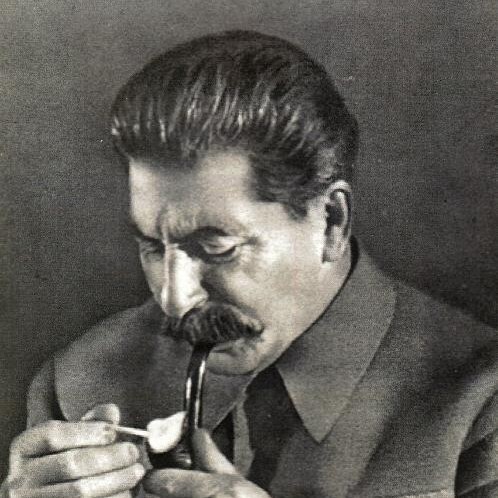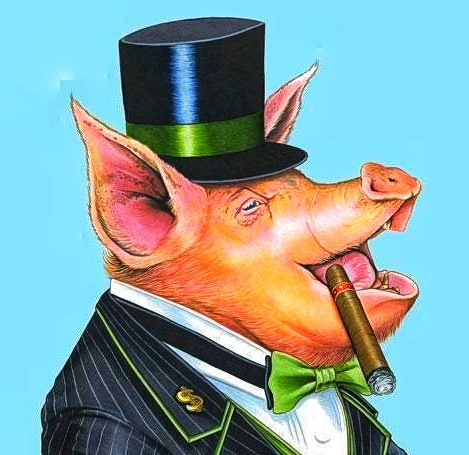I mean, they have a video where they paint Fredrick Douglas as a moderate who opposed violent change so this wouldn't be too far off base
But it was Brown's impassioned words that made the biggest mark, as he spoke of a plan to free the enslaved and squirrel them to freedom through the Alleghany Mountains.
His measured responses to Douglass' questions showed he had given the matter careful thought. Armed men would be stationed at strategic checkpoints, he explained, from where they would slip down to towns to rally the enslaved and acquire provisions. And even if authorities managed to corner them, what better way to die than for such a noble cause?
Douglass was then a proponent of William Lloyd Garrison's "non-resistance" form of abolitionism, but he began to reassess his beliefs after the night at Brown's home. "While I continued to write and speak against slavery, I became all the same less hopeful of its peaceful abolition," he wrote. "My utterances became more and more tinged by the color of this man's strong impressions."
By the mid-1850s, Brown had become a national figure in his own right for his involvement in the violent "Bleeding Kansas" border conflicts, his actions celebrated by those who felt that slavery would only end through bloodshed. "I met him often during this struggle," Douglass wrote, "and all I saw of him gave me a more favorable impression of the man, and inspired me with a higher respect for his character."
Brown frequently stayed with Douglass during his trips back east to acquire money and arms during these years, one such visit captured by their joint letter to Brown's wife in January 1858.
But despite his own heightened militancy, Douglass believed in the importance of political action to bring an end to slavery, placing him at odds with the increasing radicalism of Brown. The two men joined other abolitionist leaders at the Detroit home of William Wells in March 1859 but were unable to resolve the stalemate over their differing views.
The accusations prompted Douglass to defend himself in an October 31 letter to the Rochester Democrat and American, in which he insisted that he "never made a promise" to join the raid and that the "taking of Harpers Ferry was a measure never encouraged by my word or by my vote." Regardless, he knew he was in a world of trouble for his public ties to a man being tried for treason, and by November he had set sail for England.
So libs like to do this thing that they do with MLK and Malcolm X. Libs go "Malcolm X was violent. Violence is cringe. MLK was non violent, nonviolence is based." but as we know that's a false dichotomy. Neither of them were liberals, they were both revolutionaries, and they took a revolutionary approach to politics, but utilized different approaches when it came to violence. That's fine. Both of them resented the incrementalism of liberals, the false dichotomies of moderates. The same can be said of John Brown and Fred Douglass. Libs like to pretend Fred Douglass never advocated for violence in any way, but as we can see Frederick Douglass did not disagree with John Brown's use of violence, but was worried he was going into a trap. Frederick Douglass similarly was not opposed to Harriet Tubman's militancy. The picture is complicated by the fact that the men at Harpers' Ferry said that Douglass promised to send men, and Douglass denies this, but it's entirely possible that Douglass was simply trying to protect himself, which is why he fled to England afterwards. Frederick Douglass was not a pacifist. One of the most important stories from his life was a fist fight he got in with his owner.
Absolutely
"His zeal in the cause of freedom was infinitely superior to mine. Mine was a taper light, his was the burning sun. Mine was bounded by time, his stretched away to the silent shores of eternity. I could speak for the slave. John Brown could fight for the slave. I could live for the slave. John Brown could die for the slave."
Bro im telling you
That cartoon dog is too cute
We need to seize that dog
What kinda irritates me is that they draw Dennis Prager as a child too, adult face. At least Lil Bill actually made him look like a kid.Also, lmao that these are the people lecturing you on "indoctrinating children" yet here they do it shamelessly. I full on fear what one of those shows is like:
"Those EEEEEVIL scientists are trying to spoil your fun with polluting and being nice to those ICKY rainbow losers! Have no fear, a billionaire and his plucky brand of oil oligarchs and theocrats will save you!"
Legendary restraint waiting this long to drop the jewish question.




